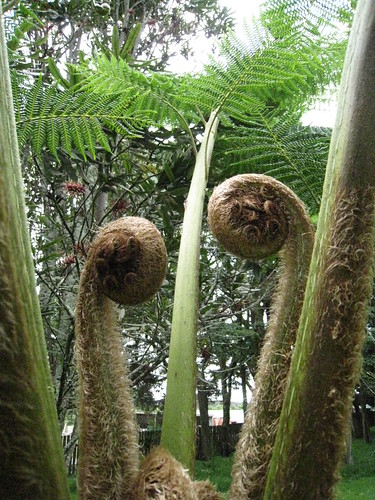“Still another thing I’m sure of is how lucky I am,” Charity said, and smiled around our attentive circle in a proud, self-congratulatory way. “I don’t have to do this alone. I’m surrounded by the people I love, and I’m doing my best to teach them what I’m trying to learn myself: not to be afraid, not to resist, not to grieve.”
Her smile, directed now at Sid alone, widened; her face took on a look at once monitory and mischievous. “It’s as natural as being born,” she said, “and even if we stop being the individuals we once were, there’s an immortality of organic molecules that’s absolutely certain. Don’t you find that a wonderful comfort? I do. To think that we’ll become part of the grass and trees and animals, that we’ll stay right here where we loved it while we were alive. People will drink us with their morning milk and pour us as maple syrup over their breakfast pancakes. So I say we should be happy and grateful, and make the most of it. I’ve had a wonderful life, I’ve loved every minute.”
She stopped. Her eyes touched us all, Sid last. A wistful, questioning, pleading smile hung on her lips, a smile that held and wavered as her look wavered and held on his face. Any man would be shaken to have a woman look at him like that. Sid was.
“I’ve had the man I loved,” she said very softly. “I never lost him the way so many women do. I’ve had bright, beautiful children. I’ve had dear friends. You may not believe this, but this has been the happiest summer of my life.”
Still none of us found anything to say. Air moving uphill from the woods and lake stirred the seeding flower-heads of Delphinium that rose above the wall. A Monarch butterfly caught in the draft was lifted twenty feet over our heads. I saw Sid look away from Charity’s unsteadily insistent glance to follow the Monarch’s movement. Perhaps he was fantasizing, as I was, that there went part of what had once been the mortal substance of Aunt Emily or George Barnwell or Uncle Dwight, absorbed by the root of a beech tree in the village cemetery, incorporated into a beechnut, eaten by a squirrel, dropped as a pellet in a meadow, converted into a milkweed stalk, nibbled and taken in by this butterfly, destined to be carried south on a long, unlikely, interrupted migration, to be picked off by a flycatcher, brought back north in the spring as other flesh, laid in an egg, eaten by a robbing jay and laid as another kind of egg, blown out of a tree in a windstorm, soaked up by the earth, extruded as grass, eaten by a freshening heifer, some of it foreordained to be drunk, as Charity said, by its own descendants with their breakfasts, some of it deposited in cowpads, to melt into the earth yet again, and thrust upward again, immortal, in another milkweed stalk preparing itself to feed more Monarch butterflies.
Charity, speaking to her husband and friends, is dying of stomach cancer.
Crossing to Safety, Wallace Stegner.
